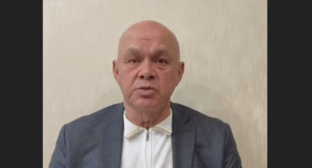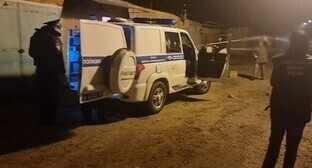13 April 2011, 23:30
Oleg Orlov: so far, flow of violence in Dagestan is unstoppable
The discussion at the presentation of the report of the Human Rights Centre (HRC) "Memorial" entitled "New Magomedov's Course?" ran about the growth of terrorism in the country and continued human rights violations; however, the authorities' attempts to start dialogue with human rights defenders were also noted. The event was held at the Independent Media Centre.
The topic of the event highlighted the human rights situation and attempts to consolidate the society in the Republic of Dagestan in the period from February 2010 to March 2011.
The press conference started with a speech of Oleg Orlov, Chairman of the Board of the HRC "Memorial" and co-author of the report. He noted that terror acts in Dagestan are incessant; and this was the reason for making the report. "Recently, in Dagestan a local imam was killed; and in the Tsumadin District five policemen were killed and seven more injured in a militants' attack," said Orlov.
Oleg Orlov explained that his organization worked closely in Dagestan since 2007; and until recently the situation has only worsened: on the one hand, growth of terror acts, and on the other hand - the state that responds "with terror to terror."
"After 2010 we saw trends that give hope. The republic's authorities began building new relations with the society and interact with public and some human rights organizations, which was not the case under previous leaders. With the advent to power of a new president Magomedsalam Magomedov, the authorities began attempting to interfere in individual human rights violations and crimes committed by employees of state power agencies. They manage to save lives and stop torture, but they can't change the system; it's still 'tuned' to illegal violence," said the human rights defender.
Mr Orlov also drew attention to appearance in Dagestan of the Commission for adaptation, aimed at helping militants' to return to normal life; the Commission includes members of moderate Salafite communities, those who had been recently persecuted as Wahhabites.
He also mentioned the Dagestani regional organization "Territory of Peace and Development", which offers an alternative way of development of the Dagestani society towards accord and peace.
Oleg Orlov explained that in the Republic of Dagestan the building of a dialogue between religious communities and the authorities is very important, since Dagestan traditionally practices two trends of Islam: Sufism (tariqa) and Salafism, which is wrongly called Wahhabism. The report presents the viewpoints of Salafites. They advocate direct inclusion of norms of Sharia (Islamic law) into political and public life. While criticizing the collapse of the effective state system, corruption and planning system, Salafites began to de facto create their alternative centres of power. In this conflict the authorities, according to the report, have chosen to support the tariqa trend of traditional Islam.
"The authorities have equated the Salafite community and terrorists and their accomplices. Terrorists use the extreme Salafism as their ideological basis. The authorities have equated the fight against terrorism to the fight against ideology. In the report, we pay great attention to crimes committed by terrorists," said the human rights activist.
Ekaterina Sokiryanskaya, a member of the Board of the Historical-Educational and Charitable Society "Memorial", told about human rights violations in Dagestan; the problem of kidnappings committed by power agents; systemic use of torture at pre-trial facilities, official institutions and illegal detention centres with the aim to receive information or confessions of participation in illegal armed formations (IAFs). According to her story, it is especially evident in the Kizilyurt ROVD (District Interior Division). "A serious concern is caused by human rights violations in the course of special operations and at liquidation of militants by power agents," said Sokiryanskaya.
She stressed that there is a trend, when criminal cases are initiated against the people "who had suffered from policemen and tried to demand investigation."
Ekaterina believes that the key word for describing the human rights situation in Dagestan is impunity. The report described many cases of human rights violations; and only one of them was brought to the court. This is the case of beating by policemen of the Shamil District of a boy of 14.
Svetlana Gannushkina, Chair of the Committee "Civil Assistance" and a member of the Presidential Council on Civil Society Development and Human Rights, said that on May 18-19 Makhachkala would host a roundtable, where the above Presidential Council will be represented by Fedotov; and participation of Russian Ombudsman Lukin; Nikolai Svanidze, a member of the Public Chamber at the Russian President; and human rights defender Liudmila Alekseeva is also expected.
"The roundtable will cover several topics: human rights; social and state support of initiative of public organizations, and civil reconciliation," said Gannushkina.
Author: Julia Buslavskaya Source: CK correspondent




